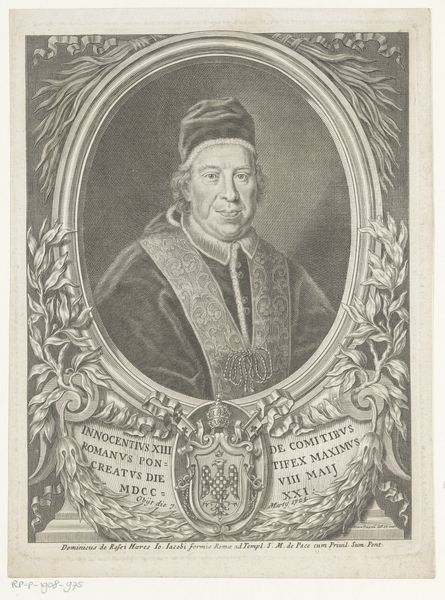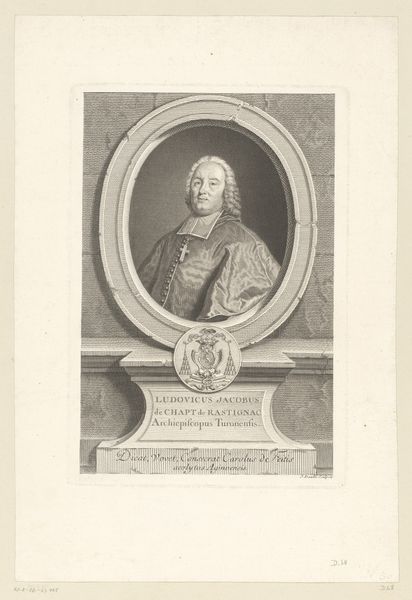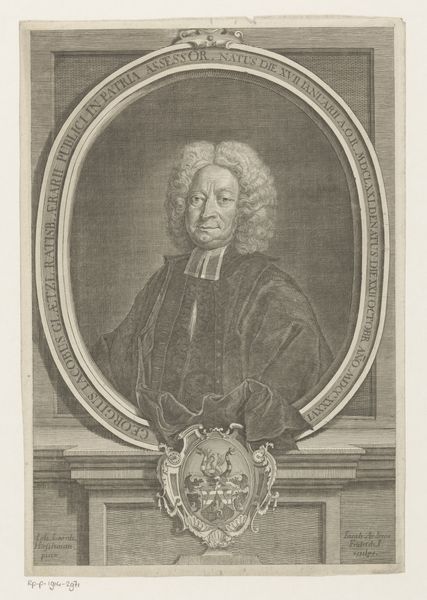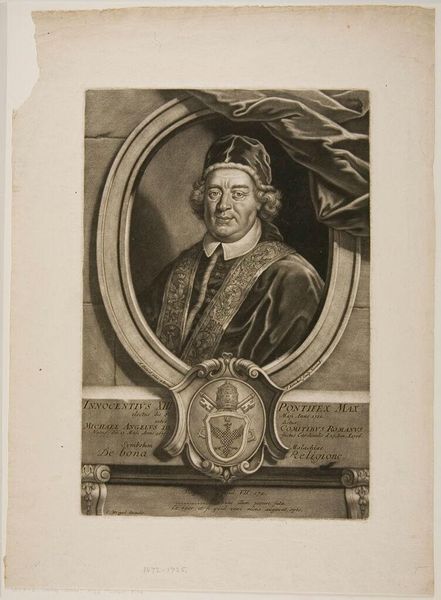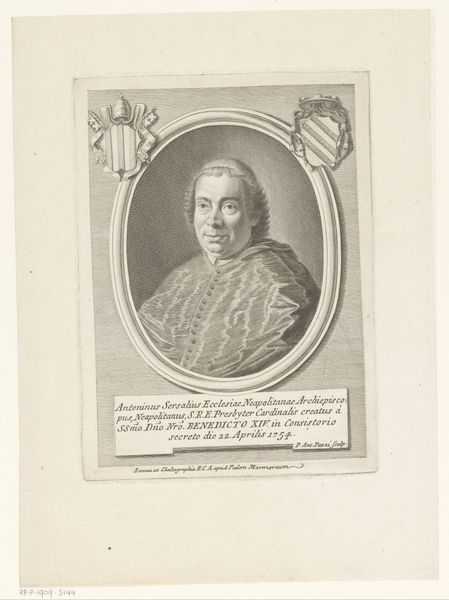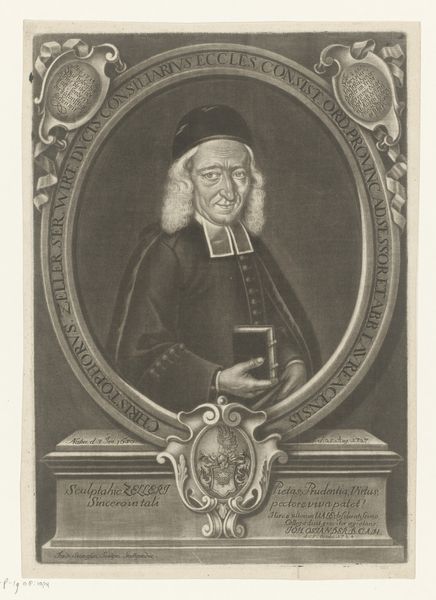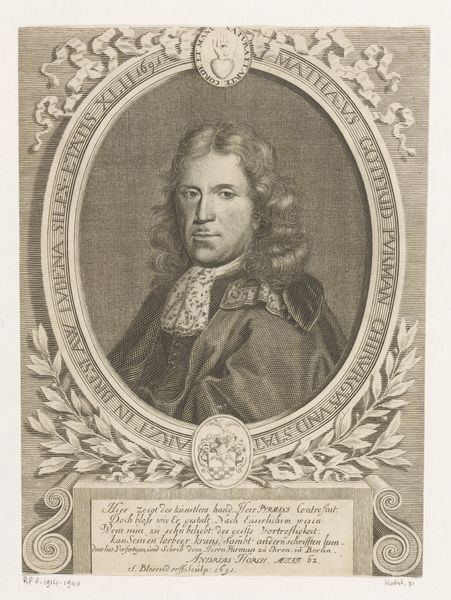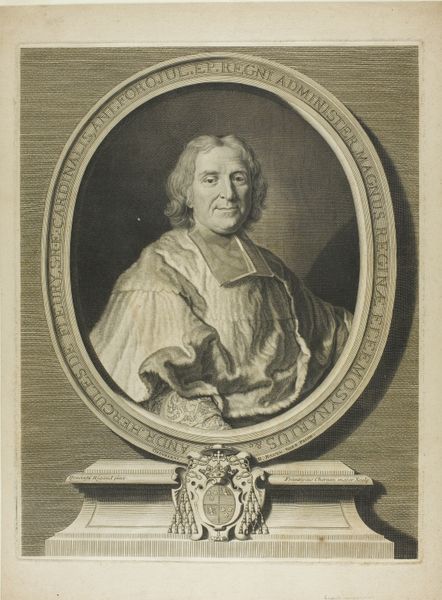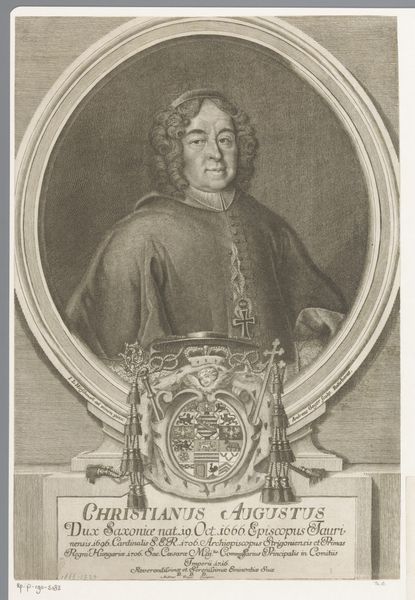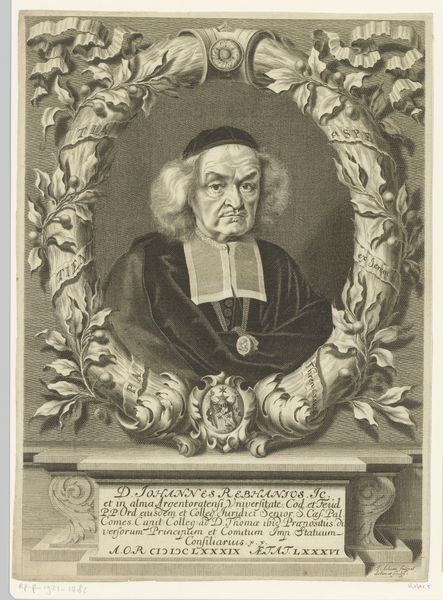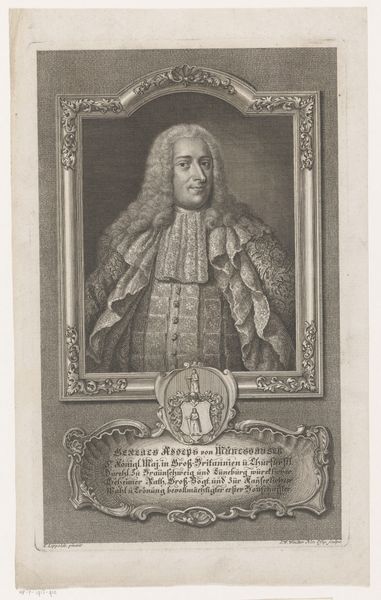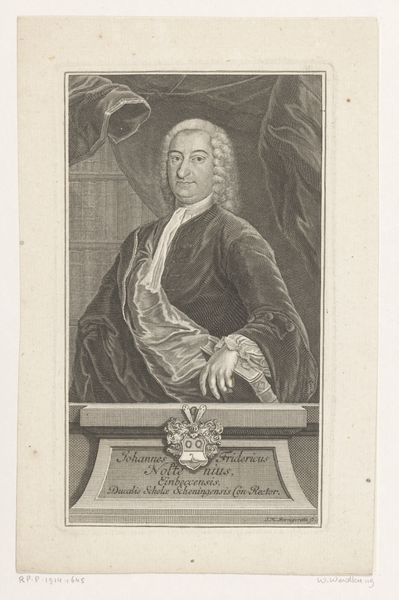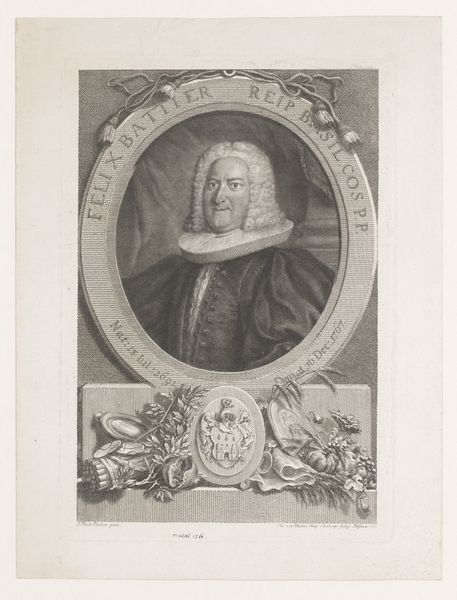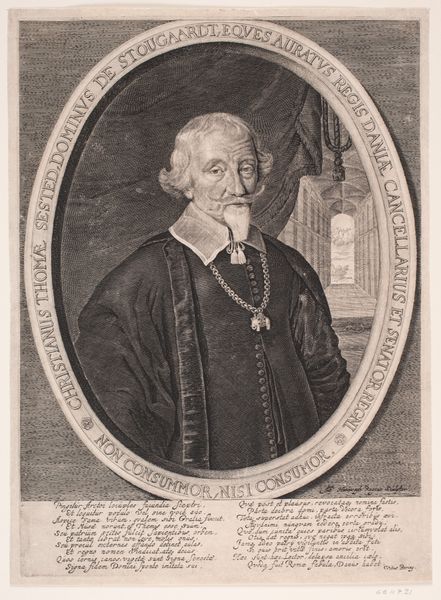
engraving
#
baroque
#
old engraving style
#
caricature
#
portrait drawing
#
history-painting
#
engraving
Dimensions: height 325 mm, width 218 mm
Copyright: Rijks Museum: Open Domain
This portrait of Innocent XIII was etched by Johann Kenckel sometime around the early 18th century. The printmaking process is key to understanding its appeal. Etching involves coating a metal plate with a waxy ground, scratching an image into it with a needle, and then submerging the plate in acid. This eats away at the exposed metal, creating lines that hold ink. The plate is then wiped clean, leaving ink only in the etched lines, and printed onto paper. This method allowed for relatively quick reproduction, making images like this accessible to a wider audience. While a painted portrait was a luxury for the elite, an etching could circulate more freely, disseminating the image of the Pope and reinforcing his authority. The very act of reproduction, therefore, has a social significance, turning the Pope into a figure of wider cultural consumption. It's a good reminder that even seemingly traditional art forms are deeply enmeshed with evolving modes of production and distribution.
Comments
No comments
Be the first to comment and join the conversation on the ultimate creative platform.
